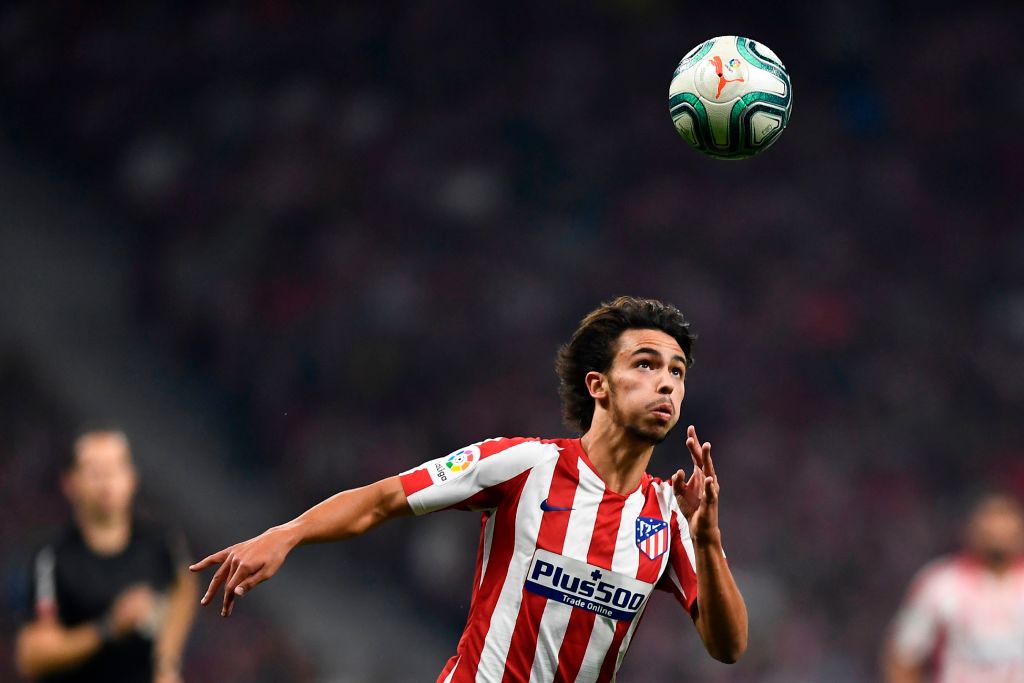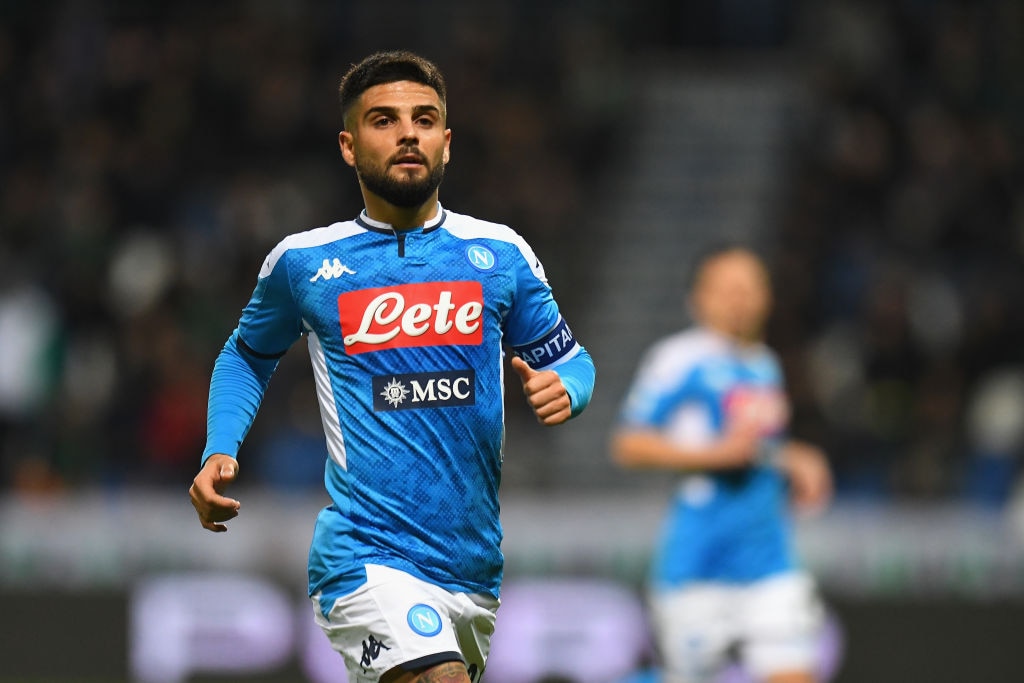General
Barcelona Floors Real Madrid With Huge Margin To Become World Richest Football Club

Barcelona have overtaken Real Madrid to become the world’s richest football club, according to Deloitte’s Football Money League.
The Spanish champions saw revenue soar to €840.8m (£741.1m) last year – a record figure for any team and almost 10 per cent more than rivals Real Madrid, who are second.
Manchester United, in third, remain the highest placed English club in the annual ranking, which is based on revenue and published today.
United recorded income of €711.5m (£627.1m) for 2018-19 but may soon find their status as the Premier League’s financial powerhouse under threat from Manchester City and Liverpool, says Deloitte.
Bayern Munich and Paris Saint-Germain complete the Football Money League top five, with City, Liverpool, Tottenham Hotspur and Chelsea the other English teams in the top 10.
DELOITTE FOOTBALL MONEY LEAGUE: THE WORLD’S RICHEST CLUBS
Click on the clubs for revenue breakdowns and further details.
1. Barcelona
Barcelona saw revenue hit record levels as they won LaLiga for the eighth time in 11 years. Off the pitch, a change in commercial strategy regarding licensing and merchandising contributed to a huge €150m uplift.
Matchday Revenue: €159.2m (£140.4m)
Broadcasting Revenue: €298.1m (£262.7m)
Commercial Revenue: €383.5m (£338.0m)
Total Revenue: €840.8m (£741.1m)

2. Real Madrid
Real Madrid fell behind Barcelona as revenue grew just one per cent in the first year without Cristiano Ronaldo. The club finished third in LaLiga and only made the last 16 of the Champions League.
Matchday Revenue: €144.8m (£127.7m)
Broadcasting Revenue: €257.9m (£227.3m)
Commercial Revenue: €354.6m (£312.5m)
Total Revenue: €757.3m (£667.5m)

3. Manchester United
Manchester United benefited from a return to the Champions League yet saw revenue grow just six per cent. Stagnating fortunes on the pitch has also left their status as England’s richest club looking vulnerable.
Matchday Revenue: €120.6m (£106.3m)
Broadcasting Revenue: €273.7m (£241.2m)
Commercial Revenue: €317.2m (£279.6m)
Total Revenue: €711.5m (£627.1m)

4. Bayern Munich
Bayern Munich recorded a five per cent rise in revenue as they won a seventh straight Bundesliga. The German giants’ growth was driven by a 20 per cent rise in broadcast income but matchday revenue fell by 11 per cent.
Matchday Revenue: €92.4m (£81.4m)
Broadcasting Revenue: €211.2m (£186.2m)
Commercial Revenue: €356.5m (£314.2m)
Total Revenue: €660.1m (£581.8m)

5. Paris Saint-Germain
Paris Saint-Germain banked double-digit percentage growth across all three major revenue streams as they won a fifth French league title in six years. The biggest increase came in commercial income, which rose by €50m.
Matchday Revenue: €115.9m (£102.2m)
Broadcasting Revenue: €156.6m (£138.0m)
Commercial Revenue: €363.4m (£320.3m)
Total Revenue: €635.9m (£560.5m)

6. Manchester City
Even back-to-back Premier League titles and a domestic treble could not stop Manchester City falling one place. But they did record revenue and a new kit deal with Puma is likely to see income rise again this year.
Matchday Revenue: €62.4m (£55.0m)
Broadcasting Revenue: €287.2m (£253.2m)
Commercial Revenue: €261.0m (£230.0m)
Total Revenue: €610.6m (£538.2m)

7. Liverpool
Champions League glory and a tireless pursuit of Manchester City domestically helped Liverpool enjoy a bumper year. Revenue grew 17 per cent thanks to £41m and £35m uplifts in broadcast and commercial revenue.
Matchday Revenue: €94.5m (£83.3m)
Broadcasting Revenue: €299.3m (£263.8m)
Commercial Revenue: €210.9m (£185.9m)
Total Revenue: €604.7m (£533.0m)

8. Tottenham Hotspur
Tottenham overtook Chelsea and Arsenal to become London’s richest club after posting record revenue. That stemmed from their run to the Champions League final and the move to their new 62,000-seater home.
Matchday Revenue: €92.5m (£81.5m)
Broadcasting Revenue: €276.7m (£243.9m)
Commercial Revenue: €151.9m (£133.9m)
Total Revenue: €521.1m (£459.3m)

9. Chelsea
Chelsea slipped one place as revenue remained virtually unchanged. Broadcast and matchday revenue fell by €4m and €7m respectively owing to the Blues’ absence from the Champions League.
Matchday Revenue: €75.6m (£66.6m)
Broadcasting Revenue: €227.1m (£200.2m)
Commercial Revenue: €210.4m (£185.4m)
Total Revenue: €513.1m (£452.2m)

10. Juventus
Signing Cristiano Ronaldo helped Juventus grow revenue by 17 per cent as they won Serie A for an eighth year in a row. The Ronaldo factor led to greater brand visibility and more merchandise sales.
Matchday Revenue: €65.6m (£57.8m)
Broadcasting Revenue: €208.5m (£183.8m)
Commercial Revenue: €185.6m (£163.6m)
Total Revenue: €459.7m (£405.2m)

11. Arsenal
No Champions League football for a second consecutive season hit Arsenal’s revenue, which grew just one per cent. They will likely need to return to Europe’s top club competition to climb the Money League table again.
Matchday Revenue: €109.2m (£96.2m)
Broadcasting Revenue: €210.6m (£185.6m)
Commercial Revenue: €125.8m (£110.9m)
Total Revenue: €445.6m (£392.7m)

12. Borussia Dortmund
Increased domestic TV payments and a run to the Champions League last 16 helped Borussia Dortmund’s income rise by 19 per cent. They remained closest challengers to perennial German title winners Bayern Munich.
Matchday Revenue: €59.6m (£52.5m)
Broadcasting Revenue: €167.3m (£147.5m)
Commercial Revenue: €150.2m (£132.4m)
Total Revenue: €377.1m (£332.4m)

13. Atletico Madrid
Atletico Madrid saw revenue grow by more than €60m thanks to new and improved Champions League broadcast distributions. Commercial income also rose 11 per cent due to new shirt and sleeve sponsorships.
Matchday Revenue: €58.6m (£51.6m)
Broadcasting Revenue: €209.4m (£184.6m)
Commercial Revenue: €99.6m (£87.8m)
Total Revenue: €367.6m (£324.0m)

14. Inter Milan
An end to Inter’s seven-year exile from the Champions League saw revenue soar by 30 per cent. Broadcast income was up 63 per cent, season ticket revenue doubled and commercial streams also increased.
Matchday Revenue: €50.9m (£44.8m)
Broadcasting Revenue: €159.2m (£140.3m)
Commercial Revenue: €154.5m (£136.2m)
Total Revenue: €364.6m (£321.3m)

15. Schalke
Schalke enjoyed an €81m revenue boost, breaking the €300m for the first time. The return of Champions League football saw broadcast revenue rise by 77 per cent but a 14th-place finish saw them miss out for 2019-20.
Matchday Revenue: €53.6m (£47.3m)
Broadcasting Revenue: €161.1m (£142.0m)
Commercial Revenue: €110.1m (£97.0m)
Total Revenue: €324.8m (£286.3m)

16. Roma
Revenue fell €19m as Roma struggled to match their previous year’s run to the Champions League semi-finals. Their results also dipped domestically as they finished outside the top four for the first time in six years.
Matchday Revenue: €31.8m (£28.0m)
Broadcasting Revenue: €144.5m (£127.4m)
Commercial Revenue: €54.7m (£48.2m)
Total Revenue: €231.0m (£203.6m)

17. Lyon
Lyon offered another example of the value of playing in the Champions League. Total income grew by 34 per cent on the French club’s return to Europe’s top table, while broadcast revenue almost doubled.
Matchday Revenue: €41.8m (£36.9m)
Broadcasting Revenue: €122.0m (£107.5m)
Commercial Revenue: €57.0m (£50.2m)
Total Revenue: €220.8m (£194.6m)

18. West Ham
West Ham increased revenue by £15m with an improved final Premier League position of 10th. The Hammers are one of only two teams in the Money League top 20 who did not play in European competition.
Matchday Revenue: €30.8m (£27.1m)
Broadcasting Revenue: €144.5m (£127.4m)
Commercial Revenue: €41.1m (£36.2m)
Total Revenue: €216.4m (£190.7m)

19. Everton
Everton saw revenue plateau without any European football last year. A £10m drop in broadcast and matchday income offset an increase in commercial revenue aided by a training ground sponsorship deal with USM.
Matchday Revenue: €16.6m (£14.6m)
Broadcasting Revenue: €151.7m (£133.7m)
Commercial Revenue: €44.7m (£39.4m)
Total Revenue: €213.0m (£187.7m)

20. Napoli
Revenue grew by almost €25m at Napoli, almost entirely thanks to a €23m increase in broadcast income. This was a result of their appearance in the Champions League and improved TV rights payments.
Matchday Revenue: €15.9m (£14.0m)
Broadcasting Revenue: €145.1m (£127.9m)
Commercial Revenue: €46.4m (£40.9m)
Total Revenue: €207.4m (£182.8m)

Spurs are now London’s richest club after they enjoyed major revenue growth due to a run to the Champions League final and their move to the state-of-the-art Tottenham Hotspur Stadium.
Local rivals Arsenal dropped out of the top 10 as their continued absence from European club football’s elite competition saw income stagnate.
How Barcelona became the world’s richest club
Barcelona’s ascent to the top of the rich list came as they won the Spanish title for an eighth time in 11 years and reached the semi-finals of the Champions League.
Their €150m surge in revenue was rooted in off-field activity, however, and the club’s decision to bring merchandising and licensing operations in-house instead of farming them out to third parties.
This affords Barca greater control of how its products are sold and allows them to report associated income on a gross rather than net basis.
While not a suitable strategy for all clubs, rivals may take note.
“Bringing operations in-house was probably the biggest impact on their commercial revenue, which increased by 19 per cent to €383.5m,” Izzy Wray of Deloitte’s Sports Business Group told City A.M.

Licensing and merchandising have been brought in-house at Barcelona
“Other clubs will see those big numbers and may look to do an analysis of their own commercial structures to see whether it would make sense to bring operations in-house as well.”
The Catalan club are the first to record revenue of more than €800m and and their commercial revenue alone was greater than the total income of any club outside the top 11 on Deloitte’s list.
Why commercial income is key for biggest clubs
Elite football continues to prove robust, with the aggregate revenue of the 20 richest clubs swelling 11 per cent year-on-year to €9.3bn (£8.2bn).
That growth was driven in part by a new cycle of broadcast contracts for European competitions, meaning bigger payouts for those taking part and enjoying success in the Champions League.
Commercial income is continuing to grow in significance as a differentiator among the biggest clubs, however, with growth in the value of broadcast rights showing signs of slowing.
Paris Saint-Germain overtook Manchester City after they banked the second highest commercial income in football history – €363.4m (£320.3m) – thanks to five new sponsors and six renewals with existing
partners.

Juventus, meanwhile, re-entered the top 10 of Deloitte’s ranking on the back of signing Cristiano Ronaldo.
The Portugal superstar, who boasts more Instagram followers than Barcelona and Real Madrid combined, helped Juve achieve commercial growth through greater brand visibility and improved merchandise sales.
The Premier League’s financial supremacy is underlined by the presence of eight of its clubs in the top 20 of the Football Money League.
West Ham and Everton, 18th and 19th respectively, are the only teams on the list despite not qualifying for European competition – again, due to the value of domestic broadcast rights in England.
Italy have four teams in the top 20, with Inter Milan, Roma and Napoli also present, Spain and Germany have three apiece, and France two.

-

 Technology2 years ago
Technology2 years agoVoIP Number: Everything You Need To Know
-

 Music3 weeks ago
Music3 weeks ago[Music] Gnash Ft Olivia O’Brien – I Hate you, I Love you
-

 Music3 weeks ago
Music3 weeks ago[INSTRUMENTAL] John Legend – All Of Me
-

 Music3 weeks ago
Music3 weeks agoAlan Walker – Faded [INSTRUMENTAL]
-

 Music3 weeks ago
Music3 weeks ago[Video] 21 Savage ft. Offset & Metro Boomin – Rap Saved Me
-

 Music3 weeks ago
Music3 weeks ago[Instrumental] Wiz Khalifa – See You Again ft. Charlie Puth
-

 ANE Stories3 months ago
ANE Stories3 months ago[STORY] AMAKA THE LESBIAN (Complete Episodes)
-

 Music4 weeks ago
Music4 weeks ago[Music] Akon – Sorry Blame It On Me































